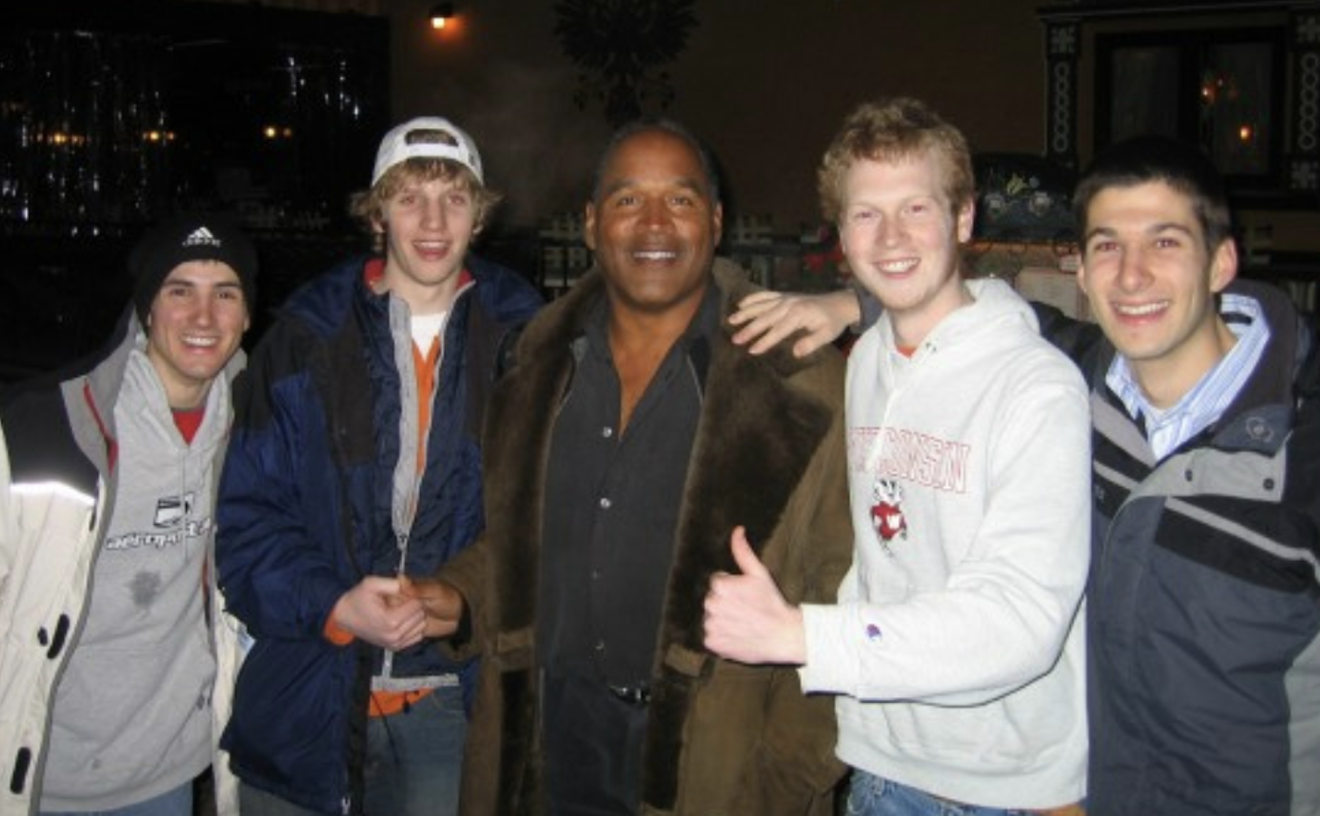"You have to be on time," Gary says. "No missing classes. No violence, no drugs, no firearms, no alcohol. You got to pay. And if you call your wife a bitch"--he nods at a small coin bank in the shape of Kermit the Frog--"you get fined, and the money goes to a women's shelter."
"You forgot the most important one," Lantz says.
"Respect," Gary says.
"No," says Fred, a recovering alcoholic who's been coming to Lantz's group for four years. "Accountability."
One of the first women in the state to work with male batterers, Lantz has been involved with AMEND and other treatment providers since before the court-ordered programs began; she also sees a group of chronic offenders at the Arapahoe County Jail, men who've been arrested repeatedly for assaulting their partners. Blonde and petite, Lantz says that being a woman has its advantages when it comes to treating men who beat women.
"The men are more open with me because they're used to talking to a woman," she says. "They automatically assume they have control and power over me. I let them think that at the beginning and use it as a way of doing therapy. They either try to intimidate me or seduce me, so you know that's how they are with other women."
But Lantz has no illusions about the men who come to see her. She has been threatened ("I take all threats seriously," she says crisply) and had her car vandalized. A female intern was once followed home by one of her clients. She does not give her home phone number to the men and will not return calls from them unless they disable their Caller ID first.
Lantz says that most of the men who get arrested for domestic assaults feel that their lives are spinning out of control and that they secretly crave the kind of structure and regimentation the programs can provide. She believes that more seasoned therapists tend to be more successful at keeping men in treatment--particularly in the crucial first few weeks of pissed-off sputtering and denial--because they are better at setting up individualized treatment plans and non-negotiable rules.
"I'm pretty hardcore," she says. "I tell them that there are Kmarts out there, and if they want Foley's, they come to me. If they just want to put in their time, there are other agencies that will take their money."
Alcohol, drugs, gambling and other problem behaviors all come under close scrutiny in Lantz's groups; many of her clients submit to voluntary or court-ordered urine tests. (One member of Gary's group had almost completed his 36 weeks when he fell off the wagon; he had to start over at square one.) Relationships get dissected, too. Five of the eleven men in Gary's group are still involved in the relationships they had when they were arrested, but research suggests that many men go through at least three partners in the course of the 36-week treatment period.
"It's hard for these guys to stay out of relationships," Lantz notes. "They believe that if they can give her everything, she's obligated to do anything they want. Of course, relationships don't work that way."
Tonight Gary, on the verge of finishing his 36-week court-ordered treatment program, announces that he's now dating for the first time since his divorce. He's not sure if he's ready for anything serious, though.
"Does she know about this group?" Lantz asks.
"Not yet," Gary says. "I don't know if she's deserving of that kind of private information at this point. We're not that close."
Others say it's best to put the cards on the table right away, before things get serious, before somebody else tells her about those push-and-shove matches with the ex.
"What if you have to take a time-out?" one man asks.
"You have new skills," Lantz says. "You have to remember that. It's okay to be scared. It's okay to come back to the group whenever you want."
But new skills can only take a guy so far, particularly if he's still trying to salvage his beat-up marriage. At least that's how Brad, the short-tempered gambler, sees it. He pipes up that the classes are great, "but it's useless if the other person doesn't get some help, too."
It's easy to tell that Brad has been in Lantz's group only a few weeks. He's given to such intemperate remarks, and the others, more thoroughly indoctrinated in the rules of accountability, come down on him like a ton of bricks: Don't blame the victim. You're here to work on you. Get over it.
Brad says he isn't denying he has a problem. He grew up with violence, he says. His own mother stabbed him in the stomach with a fork. He's abused his own kids, left his pregnant wife with no food in the house while he was off blowing his paycheck in the mountain casino towns. He knows he has a problem. But still...Sure, the classes help, he says, but so does watching The Andy Griffith Show. Sheriff Andy Taylor--now there's a good parent. Respectful to women, too.
After the group breaks up, Fred lingers in the parking lot, trying to explain why he keeps coming here, years after his court-ordered treatment ended. He made a pact with himself, he says, after his last drunken tussle with his ex-wife landed him in court, facing an almost-certain trip to prison. Miraculously, his ex spoke in his behalf, even though he'd violated a restraining order, and somehow the city attorney neglected to tell the judge about the fat file--four domestic-violence arrests, seven assaults--sitting on his desk. He received a $32 fine and an order to get into treatment, which he'd already started with Lantz. The choice was simple: lose his business and end up in the slammer or "living in a box on the street"--or take the program and make it work for him.
Although he's been sober for four years now, Fred says, he has yet to be in a sober relationship with a woman.
"I've become very picky," he says. "I want it to work this time."
--Prendergast











